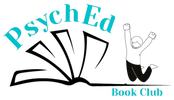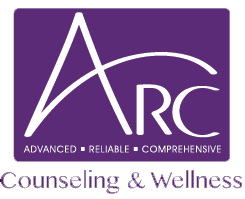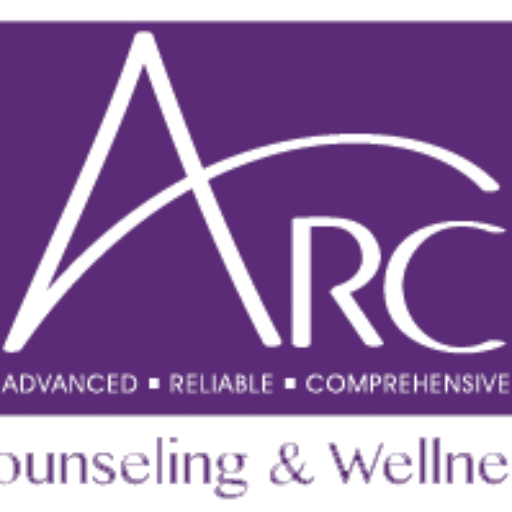Mastering Your Mental Health With the Help of Reading

The United States’ schooling system didn’t really do a good job of getting us to enjoy reading as adults. We were so excited to read in primary school, back when it was a shiny, new concept, and we got to read engaging stories in beautifully illustrated picture books. Even as we grew past elementary, some of us still had a passion for reading, and we began to engage with those YA lit novels that still hold a dear place in our hearts- series like Harry Potter, The Hunger Games, and, hilariously, Twilight. But even my friends that would have described themselves as avid readers back then find it hard to pick up any book as an adult. I can guarantee they’ve all got a couple of self-help books that they were really psyched about just collecting dust.
And can you blame us? The books in high school- those “old classics written by masters” didn’t really resonate with a lot of us. Sparknotes wouldn’t be a household name if the class genuinely enjoyed reading those books. We read these books because we were told we’d fail the class if we didn’t- and that pressure and that fear convinced us on a deep level that reading was a stressful activity. We’ve been trained in a Pavlovian fashion to view reading as a chore, something that doesn’t really have an immediate benefit to us, something tiring, boring, and generally, just not worth the effort. And that couldn’t be further from the truth.
Reading is one of the most powerful things we can do for our mental health, especially now. Reading gives us a chance to escape our life for a while in a productive and enriching way, where other forms of “escape” may be borderline self-harm. Depending on what we choose to read, we have the opportunity to learn a variety of things. As an example, in just the last month I’ve learned budgeting skills, interpersonal skills, and communication skills.
But it can still be difficult to fight that mental block against reading. We were trained to dislike reading and they trained us very well- so how do you work around that block so you can reap all these amazing benefits for your mental health?

1. PICK A BOOK ABOUT SOMETHING YOU KNOW OR ARE HIGHLY INTERESTED IN
Do you remember when the summary of the book was on the back cover? Now it seems like every book is totally decorated with medals and awards and the New York Times Bestseller ranking. I’ve tried (and failed) to read these so-called “best books of the year” and most of the time, I don’t make it past the first chapter. The problem is that I’m just not that interested in the subject matter that tends to make it onto those lists. I’m not interested in reading romance or biographies. I personally would much rather read self-help and research- my favorite book ever is actually a non-fiction book about the mental state of overachieving high-schoolers. And that book was never a bestseller- it just stood out to me one day on a crowded library shelf and 6 years later, it’s the only book I have my own copy of.
But that aside, if you don’t relate to a book’s subject matter, it’s going to be hard to convince yourself to come back to it tomorrow. Finding something that you love is crucial to training yourself to like reading again. Sometimes, that means finding a book about kittens, or a book about gardening, or a book about computers. But if you choose to go the fictional route, maybe that means finding a book about a character that finds themselves in a dead end job, or about someone overcoming a bad relationship with their family, or about someone working through a difficult partnership with a lover (….a tale as old as time!)
Just like a book about cooking can give you insight into why certain spices work well together and some don’t, a book about a character overcoming a similar situation to your own can give you insight into how to best approach a situation. Reading can be an amazing way to walk yourself through a real-life problem and explore potential solutions before you actually take any action. It’s a safe place to explore all the possible avenues without committing to any one in particular, so when you do decide it’s time to act, you’ve thought through all the choices and you’re prepared for what might come next. Reading something like this gives you an amazing opportunity to explore those situations in a safe space so that you can feel empowered to take action.

2. CREATE A ROUTINE AROUND READING
I can almost guarantee that we all have a routine that we’ve built around reading already- it’s just probably not a very beneficial one. My routine when I was required to read in high school normally went something like this:
Shower and get tucked into bed
Remember I had a test and an assignment due tomorrow in chapters 4-6 of The Catcher in the Rye.
Become frustrated that I had to get up at 10 PM to read and do homework
Read the chapters and become frustrated with the whining of the unrelatable protagonist- he doesn’t know what suffering is. I am awake at 2 AM reading his complaints. I know what suffering is.
Finish the chapters and crack open my laptop to finish the assignment.
Write for an hour with the best effort that my fried brain can handle.
Fall asleep at my desk
Fail the test anyway, and get a D+ on the paper
Does that experience resonate with you? Through situations like these- I started to believe that reading was a fundamentally stressful task. And because I internalized that, I rarely read outside of what was required.
But, just like my routine when I was reading in high school made me believe reading was strenuous, my current routine surrounding reading is helping me believe that reading is a relaxing and empowering treat. My current routine involves “book shopping” at the library for a few hours with a fancy coffee in my hand. I’ll spend hours hunting for a few books I’m really interested in, and maybe read a few pages while I browse. This whole event is very soothing to me- and when I do find a perfect book, it’s euphoric.
Once I get home and unpack, the book (or the pile of books) claims a front and center spot on my bedside table. From there, I can easily grab it for a relaxing nighttime activity, or an invigorating first-thing-in-the-morning task to enjoy while I sip my coffee.
I like my current routine much better than the old one. And if you’re going to try and build yourself a routine, make sure you build it around things you already love. If you’re a tea fanatic, make yourself a fancy flavor before you sit down to read. Maybe lure your pet over with a small snack so you have a lap warmer while you read if a soft friend is something you enjoy. Put on fancy pajamas if it’s nighttime- anything to make you feel like reading is a luxurious activity. Once you re-establish that routine, you’ll start to love reading again in no time.

3. SIT DOWN AND START
Sometimes, we can let our mind get in the way of doing the things that need to be done because our minds blow them out of proportion. I’m definitely very guilty of this. I’ll admit, there’s a huge box full of recycling right behind me right now that I’ve been ignoring for days because the thought of having to carry that big thing down the steps and out to the dumpster is so overwhelming- even though I know on some level that it won’t take any more than 2 minutes.
Reading can be the same way. I think a lot of us view reading as a very long time commitment or something that we have to dedicate a lot of brainpower too, and so the concept of sitting down to read can become overwhelming really fast. Add in a focus on our health and wellness, and most of us are done before we’ve started. The best thing to do when you feel this way is to just sit down and start. Once you start, it becomes less overwhelming, because starting is really half the battle. And once you start, maybe you’ll find that it’s not as difficult as your mind made it out to be. And suddenly, the idea of sitting with this book for a few hours doesn’t seem so bad after all!
So hop to it, you’ve totally got this and if you’d like some extra support, sign up for a book club like, PsychEd Book Club and you’ll definitely be on your way!


